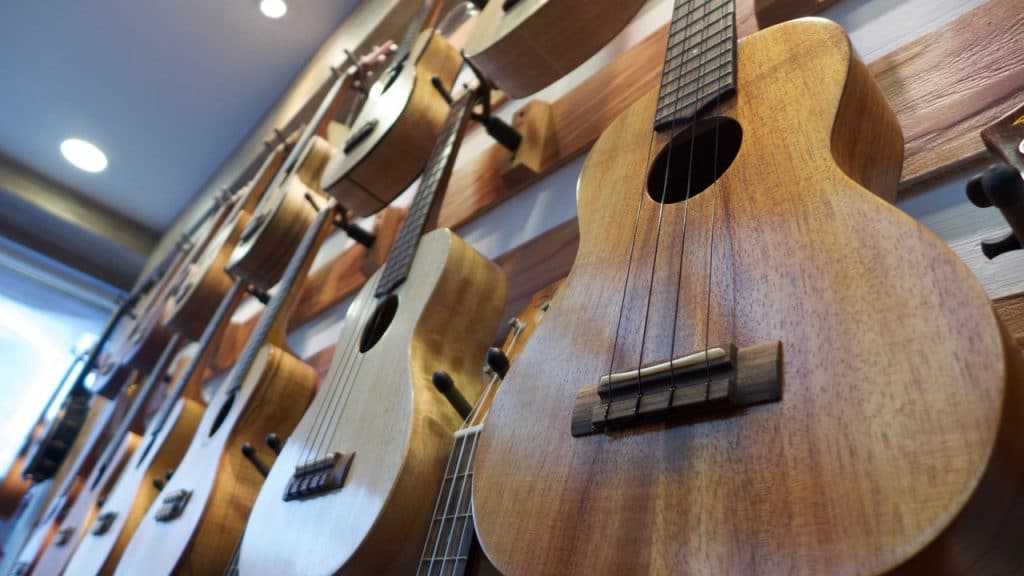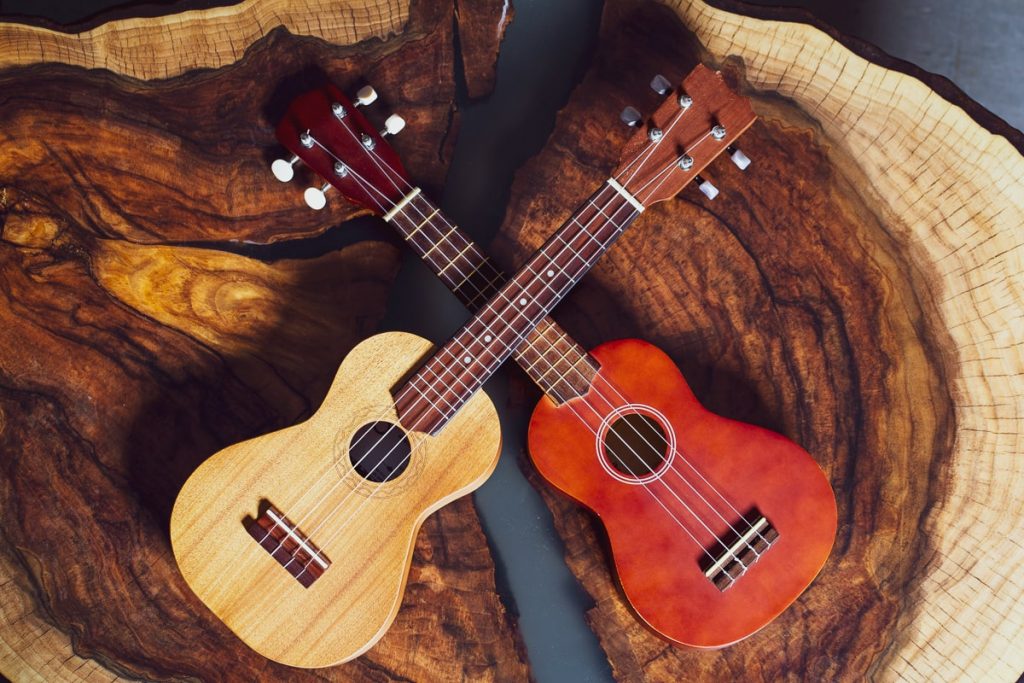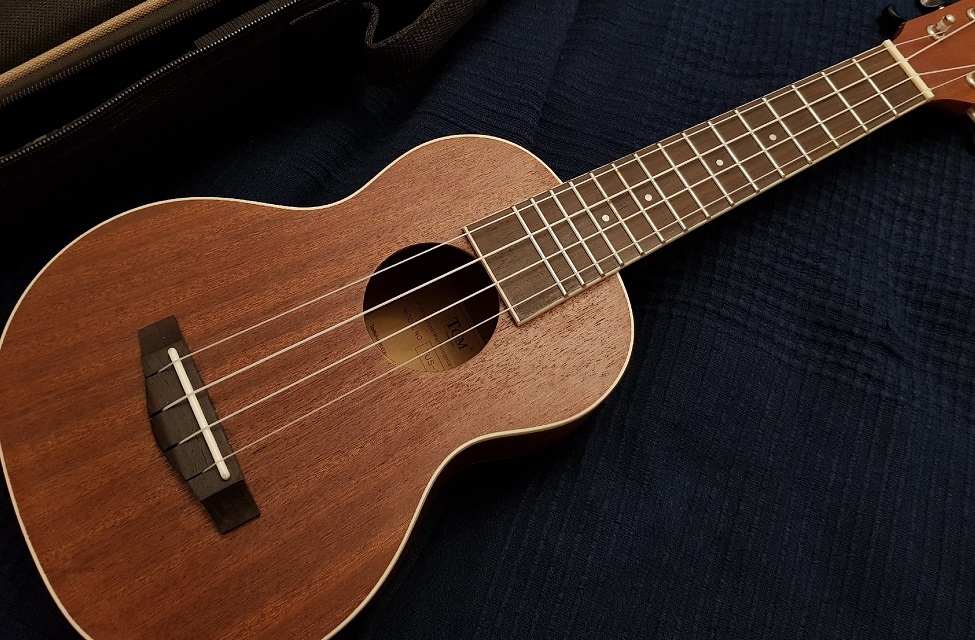Things to consider before buying a travel ukulele
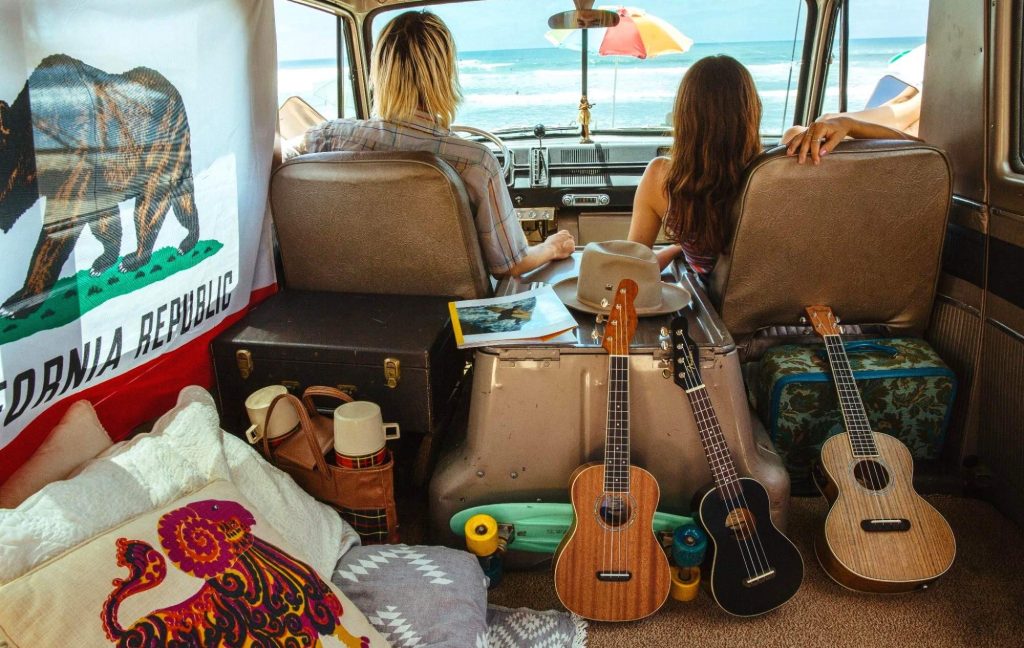 Before you start shopping, there are a number of things you will need to consider. Ukuleles can be sensitive to the environment, so you will need to consider where you intend to travel. If it is too dry or it may be exposed to water at the beach or pool side, it can suffer damage, so you may need to opt for a plastic model. If you intend to travel frequently, a harder wood instrument is likely to be more durable to stand up to the rigors of travel. Finally, you need to consider how you will transport your ukulele. You’d better avoid baggage handlers and take your ukulele as carry-on when you fly, but it is still a good idea to have a hard case to ensure that it is fully protected.
Before you start shopping, there are a number of things you will need to consider. Ukuleles can be sensitive to the environment, so you will need to consider where you intend to travel. If it is too dry or it may be exposed to water at the beach or pool side, it can suffer damage, so you may need to opt for a plastic model. If you intend to travel frequently, a harder wood instrument is likely to be more durable to stand up to the rigors of travel. Finally, you need to consider how you will transport your ukulele. You’d better avoid baggage handlers and take your ukulele as carry-on when you fly, but it is still a good idea to have a hard case to ensure that it is fully protected.
Features to consider when choosing a travel ukulele
With so many ukuleles on the market, it can be difficult to make a purchase decision. However, there are some features to consider that can help you to narrow down your options and find the right instrument for your specific requirements.
Type
There are a number of types of ukulele, but the most common are wooden and plastic. As with any instrument, the quality can vary according to the materials used and low quality materials can not only affect durability, but also sound quality and tone. As we touched on above, if you’re planning to travel to a very dry environment or your ukulele may be exposed to water, poolside or at the beach, a plastic uke may be the best option. However, if you’re not planning to travel to these types of areas, you may prefer the sound quality and feel of a wooden uke.
Another consideration for the type of uke, is whether you opt for an acoustic instrument or an acoustic electric. Most of us think of acoustic instruments when we picture a uke, but there are also acoustic electric models that feature built-in electronics that allow connection to an external amp to project the sound.
Durability
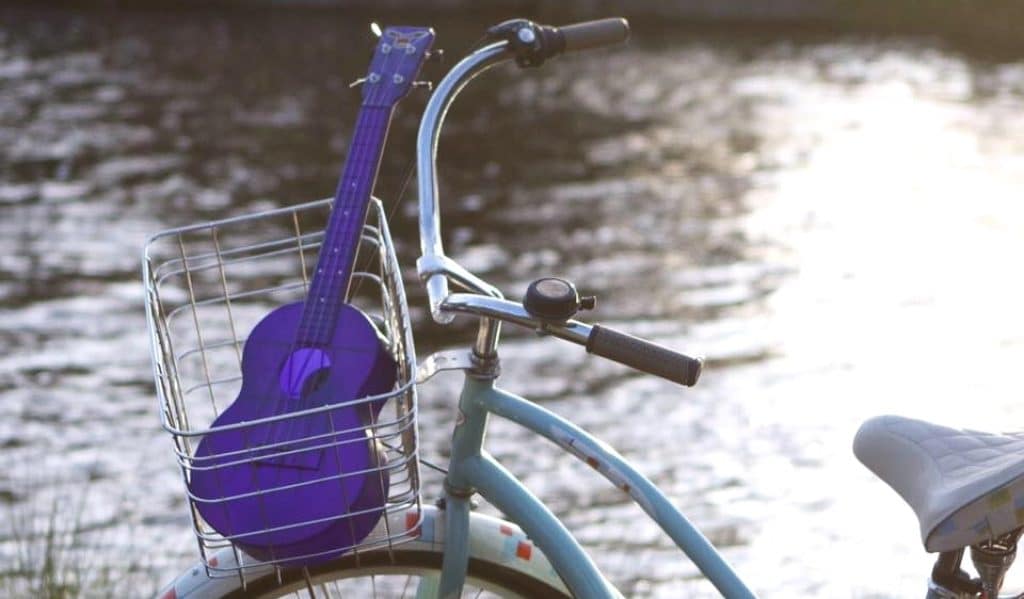 The durability of a uke is largely a result of the build quality and materials. Obviously, you want your uke to be able to handle the rigors of travel, so it is important to choose a model that offers decent durability without compromising on sound quality.
The durability of a uke is largely a result of the build quality and materials. Obviously, you want your uke to be able to handle the rigors of travel, so it is important to choose a model that offers decent durability without compromising on sound quality.
Size
The first ukuleles were often soprano sized like Luna Vintage Ukulele and Makala Kala Shark Ukulele and this is still known as the standard size today. As the popularity of the instrument increased over time, tenor and concert size ukuleles were introduced to meet the demand for fuller, bigger sounds. The first tenor and concert sized ukes were sold in the 1920s and immediately made the instrument more accessible. It wasn’t until the 1950s when the baritone uke appeared on the market. This was thought to be designed as a small guitar or big uke, but it meant the instrument appealed to an even larger demographic.
Dimensions
The dimensions of a uke are often determined by the type. Sopranos are obviously smaller than the other types, but this is not the extent of the issue. There are different body thicknesses that can affect the quality of the sound and tone.
Generally, thinner bodies are better, but if the material is not high quality, this thinness can impact durability.
Weight
While all ukes are generally lighter compared to guitars, there are some differences in weight between models. The style of uke is a major factor, with the small sopranos being the lightest and baritones being heavier. However, the material also plays a role. Harder wood is heavier and will affect the overall weight of the instrument. For example, mahogany is heavier than softwood, and both are heavier than composite.
Acoustic electric ukes contain electronics that will make the uke heavier. So, if you’re looking to be super mobile, you should probably opt for a full acoustic.
Gig Bag
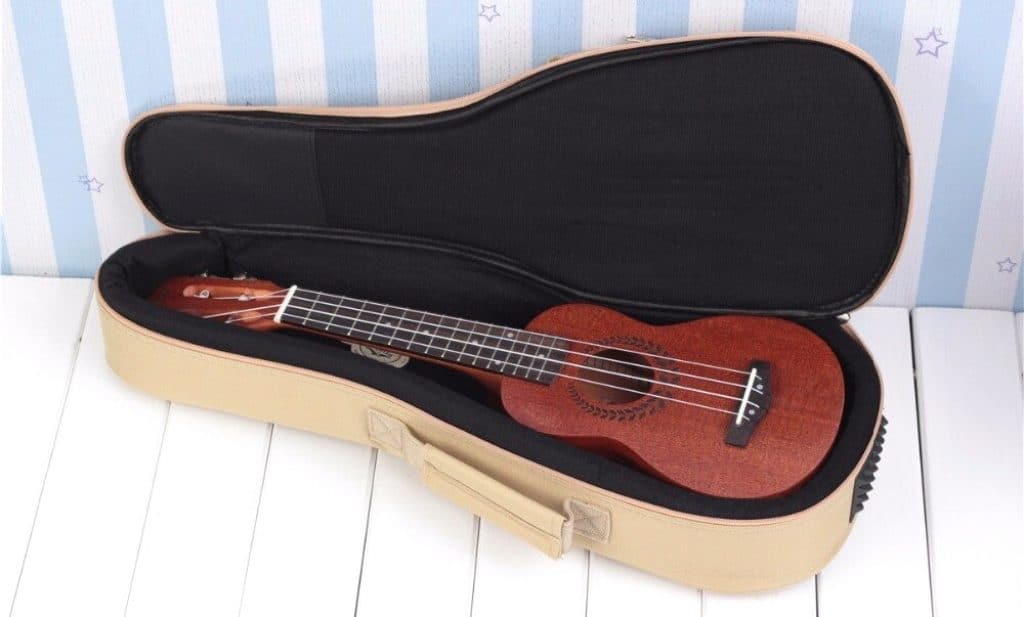 If you’re planning on taking your uke on your travels, it is a good idea to purchase a good gig bag. A good quality gig bag will not only protect your uke from the elements and any debris, but make it easier to carry around. If you intend to travel frequently, it is worth investing in a hard shell case that can provide greater protection against dents and scratches.
If you’re planning on taking your uke on your travels, it is a good idea to purchase a good gig bag. A good quality gig bag will not only protect your uke from the elements and any debris, but make it easier to carry around. If you intend to travel frequently, it is worth investing in a hard shell case that can provide greater protection against dents and scratches.
Other features
Finally, there are other features to look for. Geared tuners can help your uke to remain in tune for prolonged periods and if you’re a complete beginner, you may prefer to choose a uke that is supplied with additional extras such as straps, and other essentials that can help you to get started. Even if the accessories provided are not the best quality, you can always upgrade as you become a more confident player and develop your preferences. For example, the UBETA UC 031 is supplied with a full beginner’s kit making it an excellent option for new players.






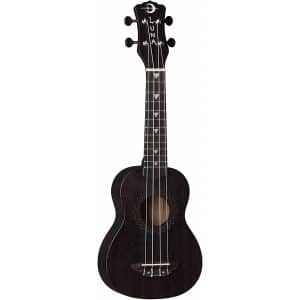
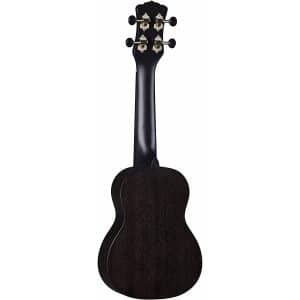
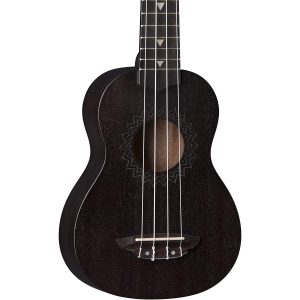
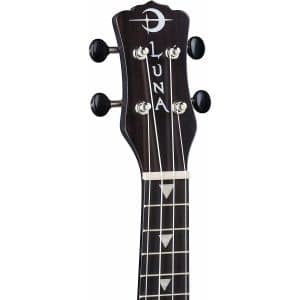
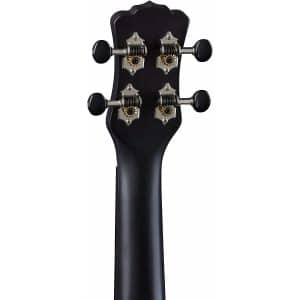
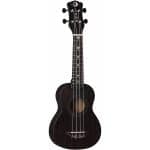
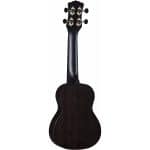
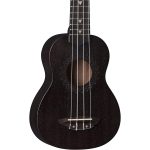
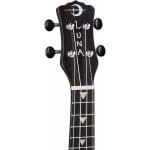
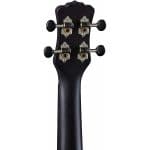
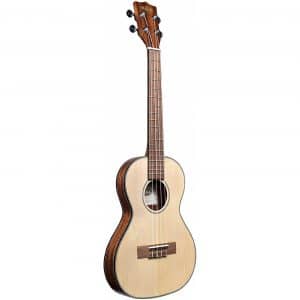
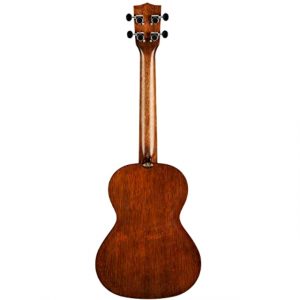
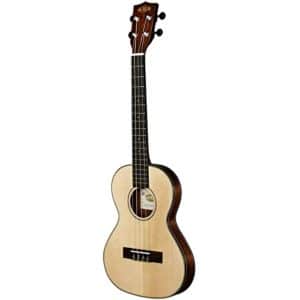
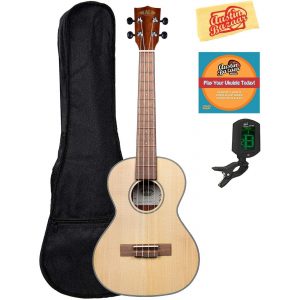
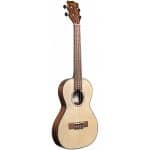
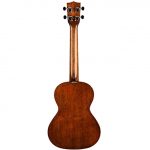
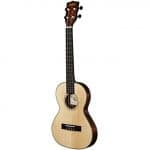
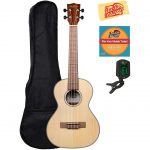
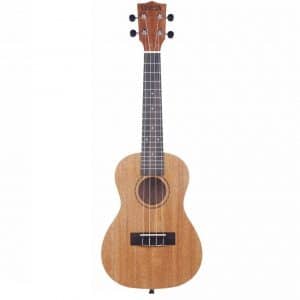
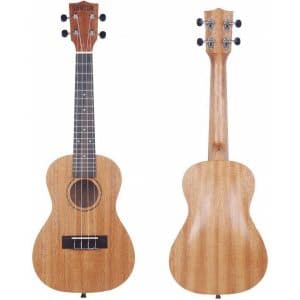
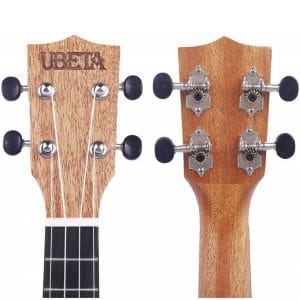
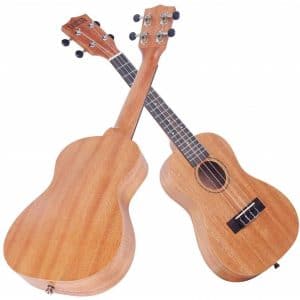
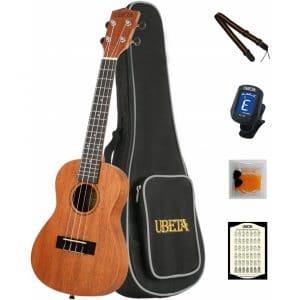
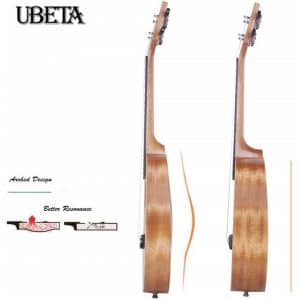
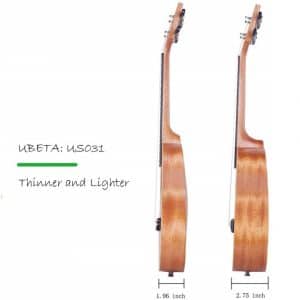
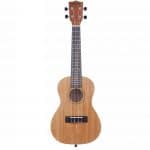
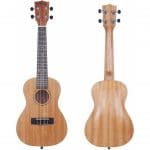
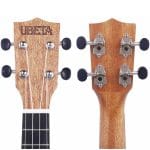
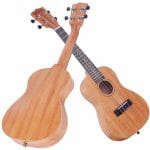
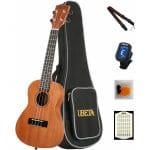
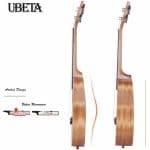
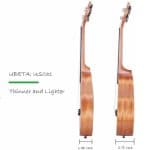
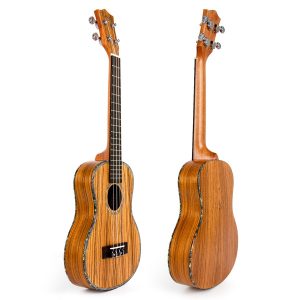
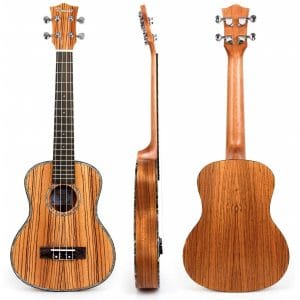
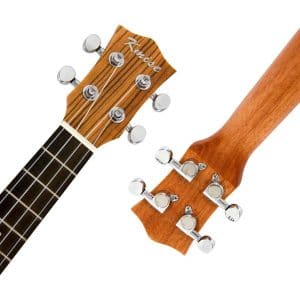
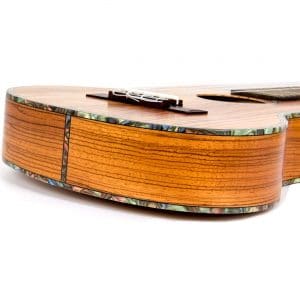
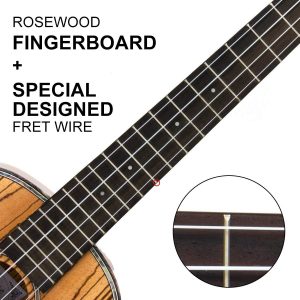
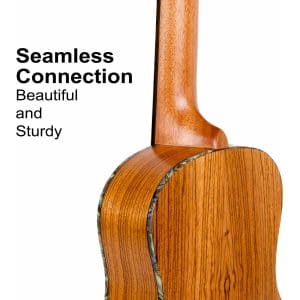
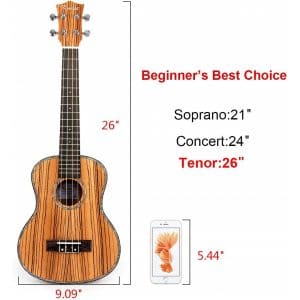
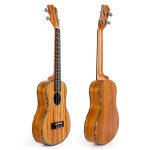
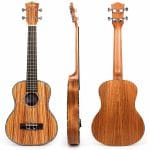
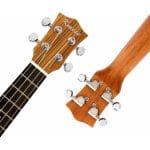
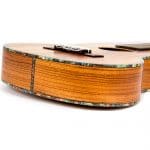
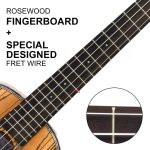
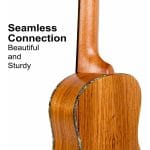
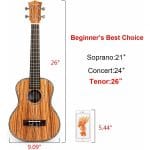

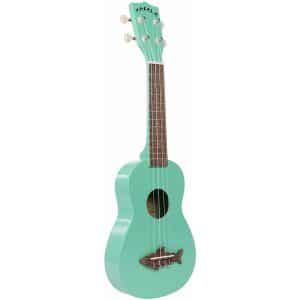
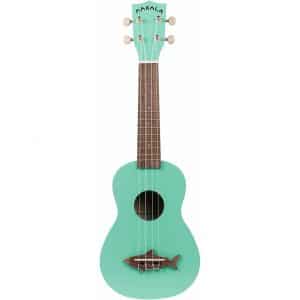
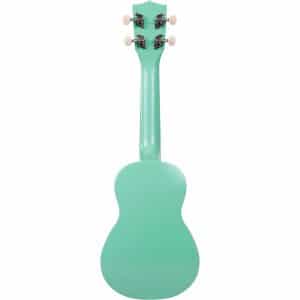
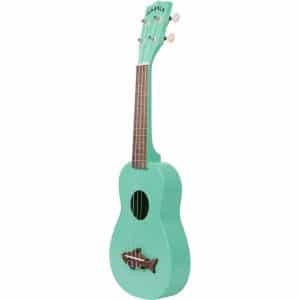

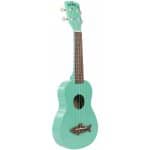
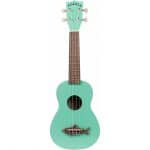
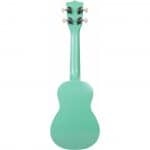
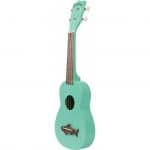

 Before you start shopping, there are a number of things you will need to consider. Ukuleles can be sensitive to the environment, so you will need to consider where you intend to travel. If it is too dry or it may be exposed to water at the beach or pool side, it can suffer damage, so you may need to opt for a plastic model. If you intend to travel frequently, a harder wood instrument is likely to be more durable to stand up to the rigors of travel. Finally, you need to consider how you will transport your ukulele. You’d better avoid baggage handlers and take your ukulele as carry-on when you fly, but it is still a good idea to have a hard case to ensure that it is fully protected.
Before you start shopping, there are a number of things you will need to consider. Ukuleles can be sensitive to the environment, so you will need to consider where you intend to travel. If it is too dry or it may be exposed to water at the beach or pool side, it can suffer damage, so you may need to opt for a plastic model. If you intend to travel frequently, a harder wood instrument is likely to be more durable to stand up to the rigors of travel. Finally, you need to consider how you will transport your ukulele. You’d better avoid baggage handlers and take your ukulele as carry-on when you fly, but it is still a good idea to have a hard case to ensure that it is fully protected. The durability of a uke is largely a result of the build quality and materials. Obviously, you want your uke to be able to handle the rigors of travel, so it is important to choose a model that offers decent durability without compromising on sound quality.
The durability of a uke is largely a result of the build quality and materials. Obviously, you want your uke to be able to handle the rigors of travel, so it is important to choose a model that offers decent durability without compromising on sound quality. If you’re planning on taking your uke on your travels, it is a good idea to purchase a good gig bag. A good quality gig bag will not only protect your uke from the elements and any debris, but make it easier to carry around. If you intend to travel frequently, it is worth investing in a hard shell case that can provide greater protection against dents and scratches.
If you’re planning on taking your uke on your travels, it is a good idea to purchase a good gig bag. A good quality gig bag will not only protect your uke from the elements and any debris, but make it easier to carry around. If you intend to travel frequently, it is worth investing in a hard shell case that can provide greater protection against dents and scratches.




